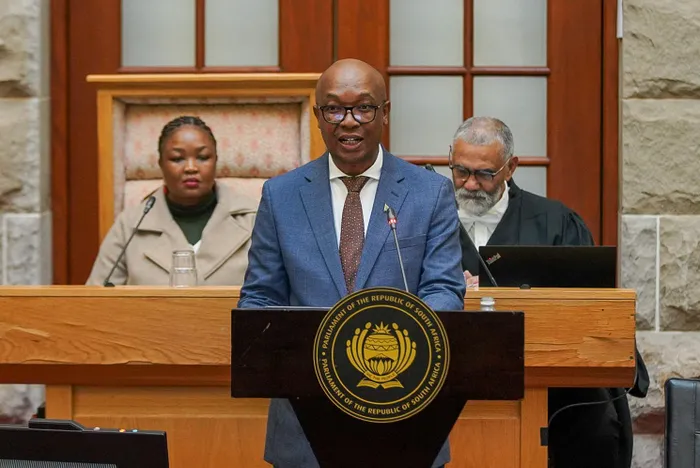
Minister for Trade, Industry and Competition, Parks Tau.
Image: Supplied
THE review of the Broad-Based Economic Empowerment Act is geared towards ensuring that South Africa's legal framework supports broader transformation, says Trade, Industry and Competition Minister Parks Tau.
He disclosed this during a question-and-answer session to DA MP Toby Chance in the National Assembly and revealed that the review of the Broad-Based Black Economic Empowerment (B-BBEE) will be executed in two phases.
The first phase will be a short-term review, focusing on refinement and review of subordinate legislation.
“This should be completed by the end of this financial year,” he said, adding that they have been in a process of consultation to finalise the Transformation Fund, and its implementation was also part of the review process.
Tau also said the second phase was a long-term review, which involved a review of the Broad-Based Economic Empowerment Act for substantive amendments.
The review of the Act aligned with South Africa's growth and inclusion strategy of the government.
“The path to economic growth, inclusion, and transformation is underpinned by broad-based economic empowerment through preferential self-performing policies. This approach helps create jobs in marginalised communities, strengthen local supply chains and ensure that economic benefits are widely shared,” he said.
DA MP Mlondi Mdluli said his party last month published the Economic Inclusion Bill for public comments amid think tanks and international investors urging South Africa to move away from race-based policies, which enable the continued capture of economic opportunities by a small minority, and leave the vast majority wallowing in poverty.
“When will the ANC realise that its race-based policy of empowerment will simply be gamed by its patronage? Mdluli asked.
In his response, Tau said that at the core of the South African problem was the historic subjugation of black people to oppression and discrimination in all forms.
“1994 represented a breakthrough in creating a democratic dispensation, but 1994 up to 2025 has not resolved the historic challenge of the oppression and discrimination of black people and the lack of access to equitable economic opportunity.
“And until this problem has been resolved, the ANC will never doubt it. The ANC's purpose of existence is the national liberation of black people, including from the economic bondage.”
EFF MP Muzi Khoza noted that the Government of National Unity (GNU) partners were opposed to black economic empowerment (BEE) and transformative measures in the country.
“What influence will their opposition to BEE have on this review you are talking about?” asked Khoza.
Tau said the measure of the broad-based black political problem was actually covered in the Statement of Intent of the GNU.
“We identified the need in the negotiations that established this government for the need to ensure that we secure the task of transformation and development, and therefore, that level of redress is critical to this government.”
He added that there will be processes of engaging in policy, having different perspectives in government.
“But, I can tell you without any shadow of doubt that our position and the position of this government is prescribed by the Constitution that seeks redress, legislation that seeks redress, and action that seeks to achieve that redress.”
Responding to ActionSA parliamentary leader Athol Trollip, Tau said any suggestion that the broad-based economic empowerment has not reached a vast number of people was a fundamental misunderstanding of the policy.
Cape Times